I’ve selected 10 top titles that make you juggle your supplies carefully. Do you agree with my Best Resource Management Board Games in 2023 list?
Introduction to Best Resource Management Board Games in 2023
Simulating economic co-dependencies between various resources is a popular concept in board gaming. You gather resource A here, then you spend it over there to get B, which helps you to get C more easily, which then translates into victory points.
Resources are often represented as wooden tokens, which makes handling them even more enjoyable. Usually, you can swap one resource for another (at certain rates), which creates not only very interesting puzzles but also ones that are very satisfying to solve.
I’ve selected 10 excellent titles that you can’t go wrong buying.
If you click on an affiliate link, it will take you to the Amazon store. If you then buy something, I will earn a commission – I am a member of the Amazon Associates program, as well as others.
10. Settlers of Catan
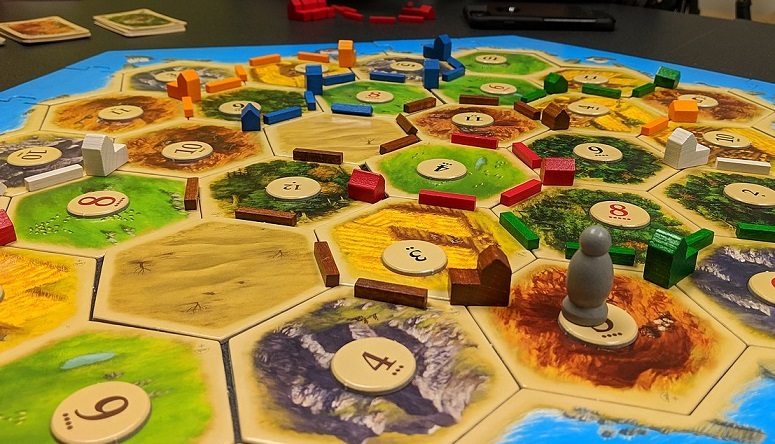
What new can I say about this classic colonization game? You arrive on a recently explored island and your task is to colonize it with the help of its lush resourceful territories. Build roads, villages, and cities, while your opponents will try to do the same.
There are five resources (we all know them: wood, clay, wheat, ore, and sheep) in the game, and you use various combinations of them to build. You can even trade the resources with other players which adds a whole new dimension to the game. One ore for two sheep anyone?
9. Puerto Rico
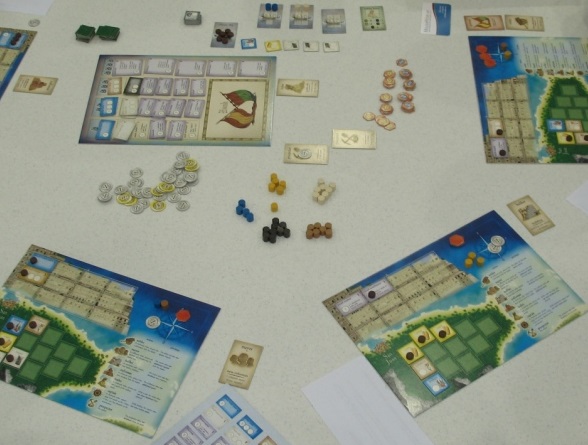
This modern classic from 2002 takes place in colonial Puerto Rico. Players compete in building and enhancing their plantations, shipping goods, and manning buildings.
Puerto Rico was the game that first introduced role-selection mechanics. For example, if you take the Builder role this turn, all players can construct a building, but you get to do it at a discount. Unused roles accumulate cash bonuses on them, encouraging players to use all of them eventually.
Of course, nothing comes for free, therefore resources such as quarry, indigo, corn, sugar, coffee, and tobacco are available for production, management, and spending. If the game interests you, check out the recently updated Purto Rico 1897 edition in the link below.
8. Everdell
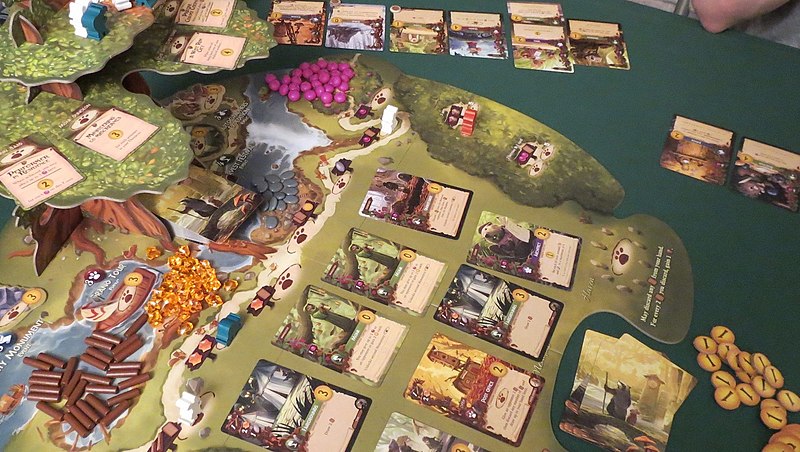
The charming valley of Everdell is a lovely piece of the forest. In the shades of mighty trees, a civilization of forest critters is looking to expand into new territories and establish new cities. Will your part of the forest be the most lustrous?
Everdell is a worker-placement game with a large emphasis on building a tableau of cards in front of you. Workers perform basic actions, such as gathering resources and drawing cards, while your tableau will provide more advanced actions, combos, and point-scoring abilities.
There are cute resources to manage (twigs, resin, pebbles, berries) and the whole game is a joy to witness on the table, such is its appearance.
7. Scythe
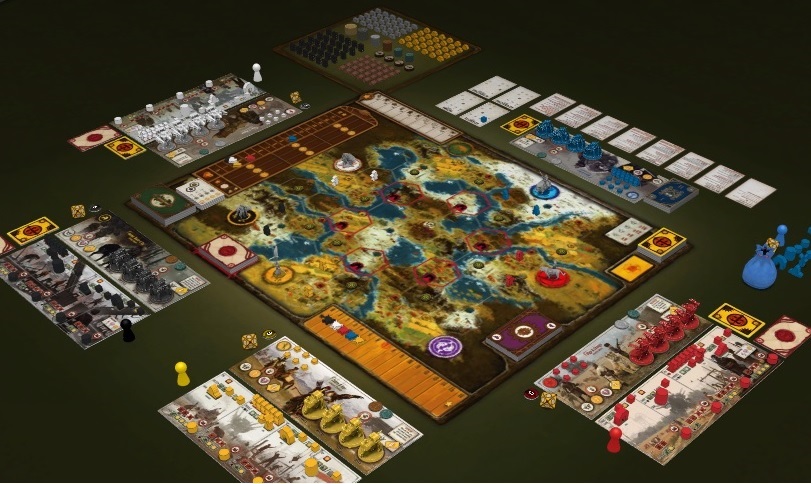
Europe, just after the Great War. The diesel-punk mechs are the main weapon to keep the population and other nations in check. Can you build a solid economy in this forsaken world?
Scythe is a very tight engine-building game. You start with only a few workers, and by cultivating the land for iron, food, oil, and wood your workforce and economy will slowly grow, allowing you to spread out more, build mechs, and various structures. All of which will help earn those valuable victory points.
Because you can’t perform the same action twice in a row, you’ve got to carefully plan ahead to make sure you’ve got the right resources at the right time. But watch out, because other players can steal them from you in battle!
6. Clans of Caledonia
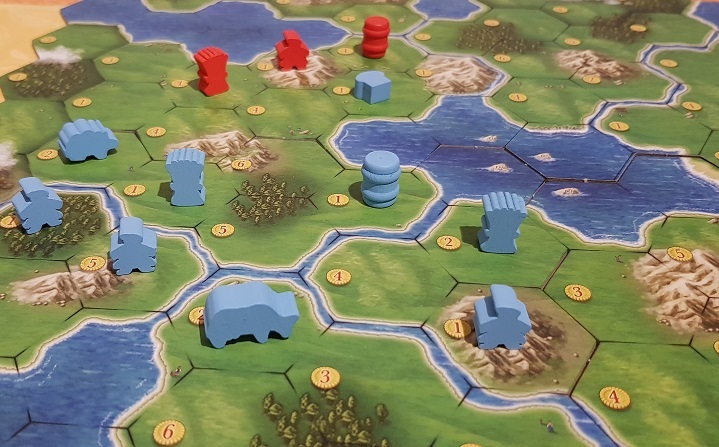
19th-century Scotland was in transition from an agricultural land of the old ways to an industrialized country, focused on trade and export. You play as one of the historic clans, trying to benefit from the newly created situation while staying true to your roots.
Eight clans are available, and each comes with a special ability, creating asymmetry and diversity, yet offering balanced gameplay. In each round, you’ll perform actions such as constructing buildings, trading goods on the market, acquiring and fulfilling export contracts, or upgrading your abilities.
Clans of Caledonia full review
You can perform as many actions as you can afford and here’s where the resource management aspect comes into place. Construct the right buildings to produce the right goods (wheat, milk, cheese, whiskey, cows, and sheep), trade what you can’t produce so that you can fulfill the most lucrative export contracts, and score the most points.
5. Concordia
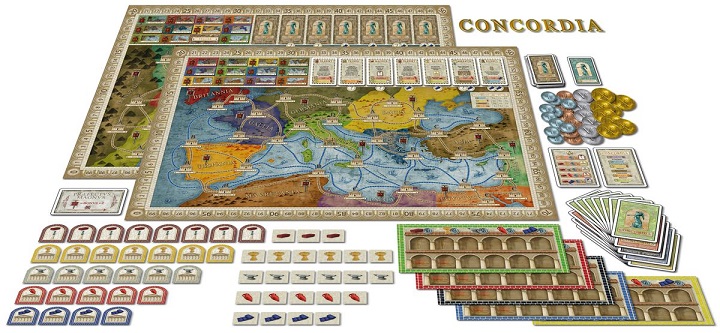
The Mediterranean has always been the breadbasket of trade. In Roman times, the surrounding area was as prosperous as ever. Business flourished and everyone wanted a piece of the pie. Including the players of this game, each playing a Roman dynasty, ready to get rich.
5 Reasons Why You Should Play Concordia in 2022
You start with a couple of colonists in Rome. As you spread out, you’ll be able to build new trading posts in cities, which will yield you more resources to build more posts. Brick, grain, tools, wine, and cloth. You can buy, sell, produce, and spend them as you please.
But that’s not all. As the gameplay is card-powered, you can add new cards to your deck. These also help with the endgame scoring – you need to align the suit of your cards to your actions on the board for maximum points.
4. A Feast for Odin
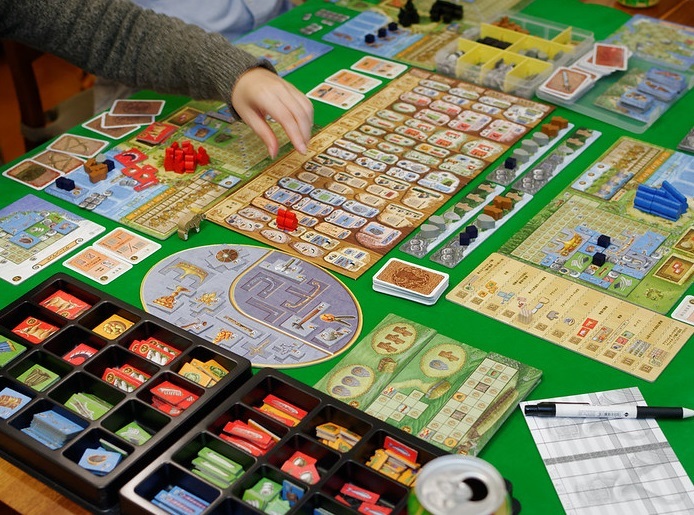
To be frank, I could have put any of Uwe Rosenberg’s farming games here: Agricola, Caverna, At the Gates of Lo Yang, and The Fields of Arle, to name a few. But I’ve decided to go with his Viking-themed title from 2016. Each player controls a Viking tribe that farms, hunts, explores, and raids. Your goal is to cover your home board with loot, completing a spatial puzzle.
We could best sum up the game as a worker-placement sandbox. There are 61 slots that allow you to build houses and ships, hunt, manage livestock, produce and manage resources, sail, and occupy new lands.
You can take your tribe in any direction, as they are all valid choices. To complete your objectives, you’ll have to carefully manage countless resources – going into such details as having pregnant animals.
If you want to be a Viking – now is your chance!
3. Terraforming Mars
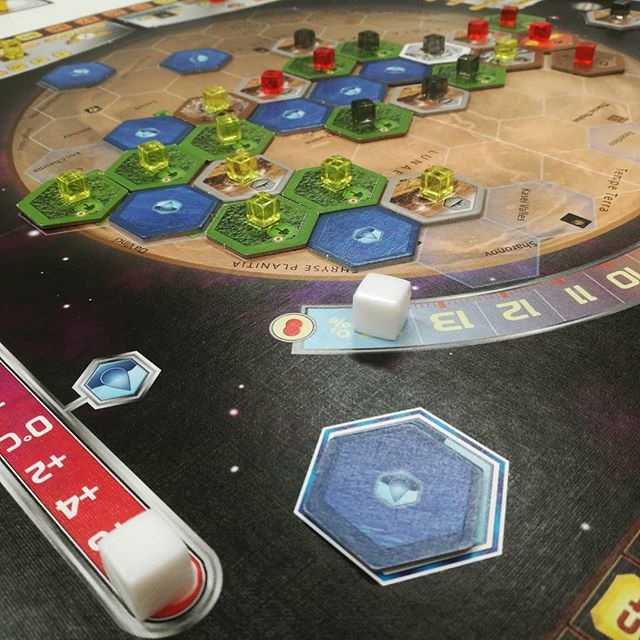
A couple of centuries into the future and humanity is finally settling on Mars. But to make it fully habitable, we need to fill the oceans, plant forests, and erect cities. You play as corporations, competing at terraforming Mars.
Terraforming Mars is focused on card drafting. There are over 200 cards that represent sci-fi thematic projects that players can complete. Build a space elevator, capture an asteroid, or complete one of the less exciting projects: Fusion Power, Biomass Combustors, or Solar Power.
But you won’t be able to complete many projects if your economic foundations aren’t solid. You need to build an engine, that will produce money, energy, heat, titanium, and steel. Manage energy into heat, use greenery to build forests, and add oxygen into the atmosphere to make it breathable.
In the tight economical system that Terraforming Mars provides, only the true strategists will populate the surface, make it habitable, and build exciting projects.
2. Gaia Project
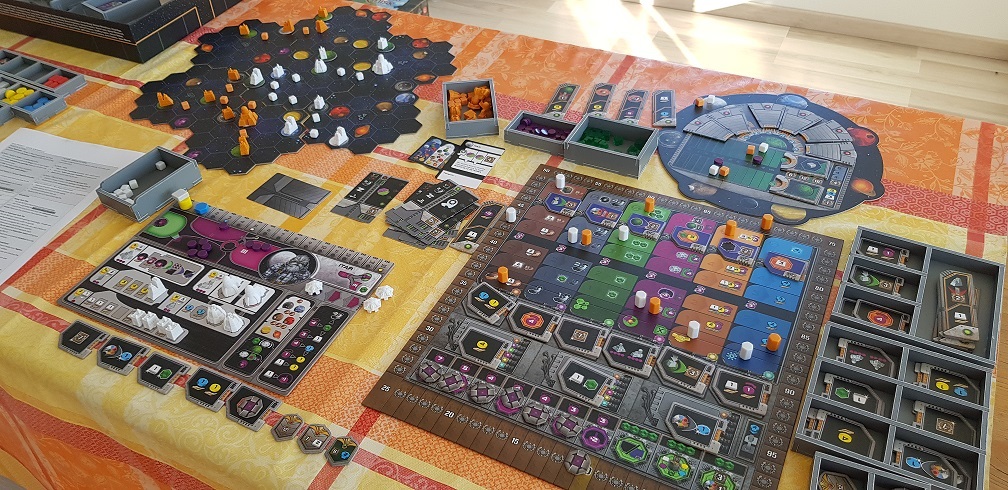
Terra Mystica uses one of the tightest and more strategic economic systems in board gaming. It’s rightfully considered a classic. Gaia Project is its direct successor, further improving the superior system. It’s set in space, where 14 factions with various special abilities compete in colonizing the planets to their liking.
But don’t mistake this for a political mega-game such as Twilight Imperium. No, this is entirely peaceful and mechanical. Use ore and money to adapt planets, and build mines, trading posts, laboratories, and institutes.
Laboratories will produce science, which can be used to research new technologies, which boost your economy and help with the end game score. Then there’s power, a fluctuating resource that powers up in stages and can be spent to gain various benefits. And quantum intelligence cubes, a wild resource, useful for traversing vast distances in space.
You need to time your expansions according to round goals (to score maximum points), which (together with scarce resources) means Gaia Project presents a superb economical puzzle and an excellent challenge for heavy gamers.
Also check out Age of Innovation, a further development of the TM system
1. Brass: Birmingham
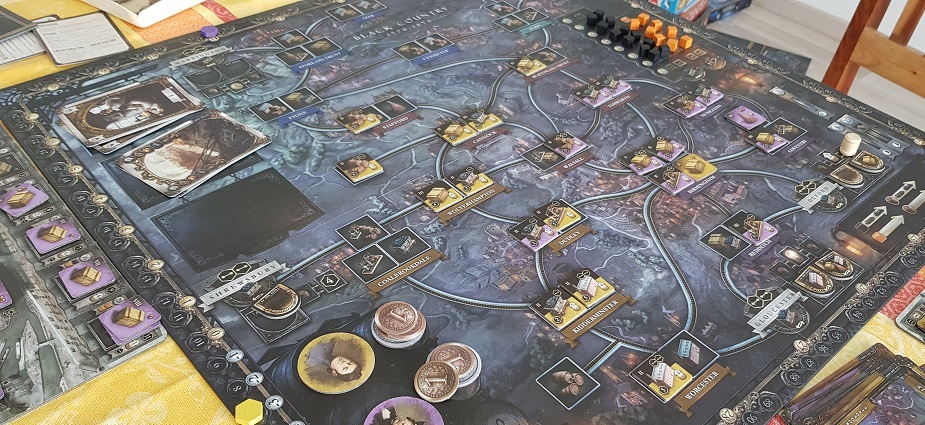
The industrial revolution is at its height and one of its bustling centers is in Birmingham. You will play as an industrial magnate of the era. Build canals, rails, and various industries in Birmingham and surrounding cities to become the wealthiest industrialist.
While normally in board gaming the resources are spent from your board or a personal bank, Brass uses a different approach. There are only three resources: coal, iron, and beer. When they are produced from constructed buildings, they stay right there, on the board, for everyone to spend.
This adds another layer of strategy. Not only do you need resources when performing actions, but you also need to logistically transport them to the place of need. You need to plan your rails carefully, hand in hand with your needs. You can even be a bit cheeky and use your opponent’s rails.
While this may sound restrictive, Brass leaves you plenty of freedom and never feels tight. There’s always something to do and you feel like you’re progressing and having fun. Of course, to win, you need to crunch all the possibilities, but even a casual player will have a lot of fun in Brass: Birmingham.
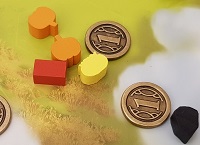
I absolutely love Settlers of Catan! It’s a classic board game that’s easy to learn but offers endless strategic possibilities. I love how the board is different every time you play, so every game feels fresh and exciting. Plus, negotiating and trading with other players adds a whole new level of social interaction to the game. If you haven’t played Settlers of Catan yet, I highly recommend giving it a try!
I’ve heard about Catan, yes. There are several articles about in on this site already. 🙂